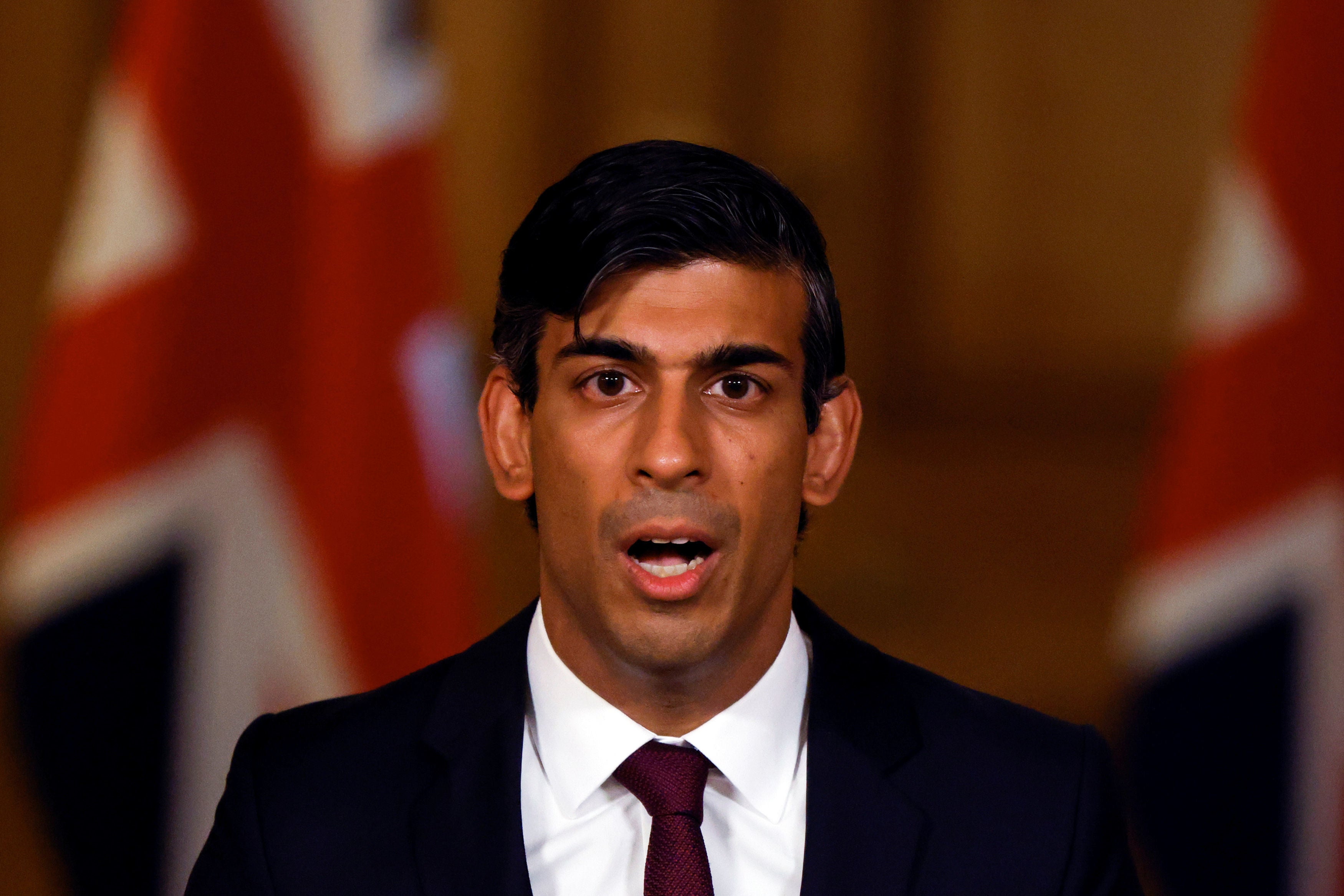Coronavirus: Billions of pounds lost to fraudsters in furlough scheme
Almost one-tenth of furloughed staff say bosses told them to work

Your support helps us to tell the story
From reproductive rights to climate change to Big Tech, The Independent is on the ground when the story is developing. Whether it's investigating the financials of Elon Musk's pro-Trump PAC or producing our latest documentary, 'The A Word', which shines a light on the American women fighting for reproductive rights, we know how important it is to parse out the facts from the messaging.
At such a critical moment in US history, we need reporters on the ground. Your donation allows us to keep sending journalists to speak to both sides of the story.
The Independent is trusted by Americans across the entire political spectrum. And unlike many other quality news outlets, we choose not to lock Americans out of our reporting and analysis with paywalls. We believe quality journalism should be available to everyone, paid for by those who can afford it.
Your support makes all the difference.Fraudsters raked in billions from chancellor Rishi Sunak’s furlough scheme, and little of the money is likely to be recovered, a spending watchdog has said.
Almost one in 10 of those put on furlough admitted working during lockdown in breach of the regulations at their employer’s request, the National Audit Office found following a report on the scheme.
The true scale of money lost to fraud and error will not be known until the end of 2021, but HM Revenue and Customs estimates released last month suggest that it could reach as much as £3.9bn for Mr Sunak’s job retention scheme (JRS), with further losses relating to a separate scheme for the self-employed.
The NAO report said that the speed with which the schemes were designed and implemented in the first weeks of the coronavirus crisis in March meant there was “a risk of considerable levels of fraud and error, particularly for the furlough scheme”.
Some 9.6 million workers were receiving furlough payments at the scheme’s peak in May, while the self-employed income support scheme (SEISS) made payments to at least 2.6 million. Together, the initiatives are predicted to have cost £70bn by the time the JRS closes at the end of next week.
The NAO said the schemes were “largely successful in protecting jobs”, with as much as 30 per cent of the entire UK workforce receiving JRS support in May and 77 per cent of the self-employed taking SEISS payments.
But the watchdog said there was “considerable risk that some employers committed furlough fraud by keeping employees working in lockdown, against the rules of the scheme, or by claiming payments and not passing them on to employees in full”
A fraud hotline set up by HMRC has received more than 10,000 calls, many referring to cases where employees worked despite their employer claiming for them as furloughed staff.
And in an NAO survey, 9 per cent of furloughed workers admitted to working in lockdown at the request of their employer.
The report found that a decision had been taken to tackle the risk of fraud through whistleblowing and retrospective compliance work.
But it was decided not to publish the names of employers receiving furlough payments, meaning workers would not know whether money was being claimed in their name unless their employer informed them.
HMRC believes it will need to redeploy staff from tax compliance work to tackle fraud and error on the schemes,” said the NAO.
Meg Hillier, the chair of the House of Commons Public Accounts Committee, said there was little chance of reclaiming much of the money.
“HMRC has paid out billions of pounds to fraudsters,” she said. “Most of this is likely to be gone for good.”
Ms Hillier added: “The job support schemes were set up incredibly fast and helped get millions of people through the initial lockdown period.
“HMRC managed to stop tens of thousands of fraudulent claims against the self-employment scheme. But it doesn’t know how many managed to slip through the net.
“It also missed chances to find out which companies were pocketing cash meant for their staff or forcing them to work while furloughed.”
The report found that as many as 2.9 million workers fell through the cracks of the support schemes, with HMRC estimating that 1.4 million of the self-employed missed out because most of their income came from other sources and 200,000 because they made trading profits over £50,000 in recent years.
Other estimates obtained by the NAO suggested that 1.1 million could not claim furlough because HMRC did not have the data to validate their claims and 200,000 could not get SEISS payments because they had only recently become self-employed.
NAO head Gareth Davies said: "HM Treasury and HMRC met their objective to rapidly implement the schemes and the civil service should be commended for making these available ahead of schedule. Indications are that the schemes helped to protect jobs in the short-term, but it is also clear that many other people have lost earnings and have not been able to access support.
"It appears that the scale of fraud and error could be considerable, particularly for the furlough scheme. HMRC could have done more to make clear to employees whether their employer was part of the furlough scheme. In future, the departments should do more while employment support schemes are running to protect employees and counter acts of fraud."
A government spokesperson said: “The government’s priority from the start of the outbreak has been on protecting jobs and getting support to those who need it as quickly as possible, and our employment support schemes have provided a lifeline to millions of hard-working families across the UK. We make no apology for the speed at which they were delivered
“Our schemes were designed to minimise fraud from the outset and we have rejected or blocked thousands of fraudulent claims. We will not tolerate those who seek to defraud taxpayers and will take action against perpetrators, including criminal prosecution.”
HMRC has already made three arrests for suspected furlough fraud, with additional criminal investigations underway.




Join our commenting forum
Join thought-provoking conversations, follow other Independent readers and see their replies
Comments